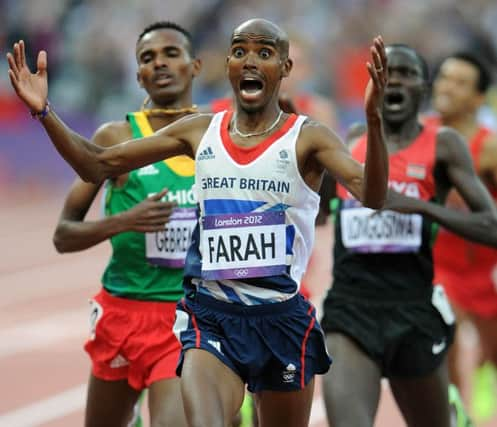John Sturrock: How you can triumph in the race of life


‘No compromise”. That was UK Sport’s mantra in the lead up to the London Olympics. High performance sport is characterised by its commitment to world-class excellence. “Good enough” is not good enough. Only the highest levels of performance will do.
In my own extensive work with UK Sport and other sporting bodies and individuals, I have been struck by the fine margins between success and failure. A milli-second, or a micro-millimetre, can make all the difference – to selection, to qualification, to a medal-winning performance. One only needs to look at Scotland’s Rugby World Cup loss to Australia to find a recent example of how near and yet how far. And of our willingness to vilify the match official when, wrong though his decision to award a penalty may have been, the primary cause was a rather poor line-out immediately before. In high performance work anywhere, we need to take responsibility for our own errors, not blame others.
Advertisement
Hide AdAdvertisement
Hide AdSo, working hard at the margins can make all the difference between success and relative failure. Little things make a big difference, as gold-medal winning UK cyclists told us and demonstrated.
This is easy to say but, as other examples in sport show, not so easy to achieve when we are under pressure. “World class performance in all conditions” reads an advert for the latest Audi car.
That’s the key. How well can we perform when the pressure is really on? When the adrenalin is pumping and cortisol flows through our systems, invoked by the fight or flight (or freeze) responses triggered in that part of the primitive brain known as the amygdala, how do we react?
This is where self-discipline, control and courage all need to kick in. Literally, in the case of a Dan Carter or a Greig Laidlaw. What are they doing in the lead-up to a place kick? Watch them.
Precious moments taken to pause, compose, focus. Without that pause, it only takes a moment to take the eye off the ball, literally and metaphorically, just as, for others, it only takes a moment...to let the wrong word slip out, to make an angry retort, to hit the send button on an email. In such moments, we shape our futures.
This is about successful last-minute defence of the goal line, thoughtful response in a difficult negotiation, pause for reflection before responding to our partners in an angry exchange. Daniel Kahneman’s systems one and two (see Thinking, Fast and Slow) remind us that conscious thought is very limited. It is said that the vast majority of our thinking and acting is unconscious. That’s helpful, if we are a finely-honed athlete, trained to such an extent that we will always throw the ball accurately at a line out under pressure or score with the last kick in a penalty shoot-out, but few of us are so finely honed in our professional Iives.
Under pressure, we can react too quickly and awkwardly. Most of us need to work hard to pause before speaking or acting. It only takes a moment or two to take stock, choose our words carefully, think about the others’ perspective, challenge our assumptions, and ask ourselves whether our initial reaction will really help.
I experienced this recently in a mediation when, after a long day, a senior lawyer snapped and vented his frustrations. As his reaction was inconsistent with my own just-aired proposals, I barked back: “And what do you suggest we do then?” Fortunately, we realised what was happening and turned a heated exchange into a moment of laughter.
Advertisement
Hide AdAdvertisement
Hide AdThe All Blacks are a model in many ways. For them too, the margins are everything. “Champions do extra” they say. They accompany this by modesty. The philosophy of “sweeping the sheds”, where even the most senior players tidy up afterwards, points to personal humility at the heart of success. The concept of “blue head” as an antidote to choking, losing focus and panicking under pressure (“red head”) gives them triggers to combat stress and perform at their best when it really matters, as when kicking that last-minute penalty.
UK Sport has said it will “soften” its approach to “no compromise” after the Rio Olympics. It will be interesting to see where that leads. For many of us, however, following the sporting examples and aspiring to high performance seems an appropriate challenge.
• John Sturrock is a mediator and chief executive of Core Solutions Group www.core-solutions.com